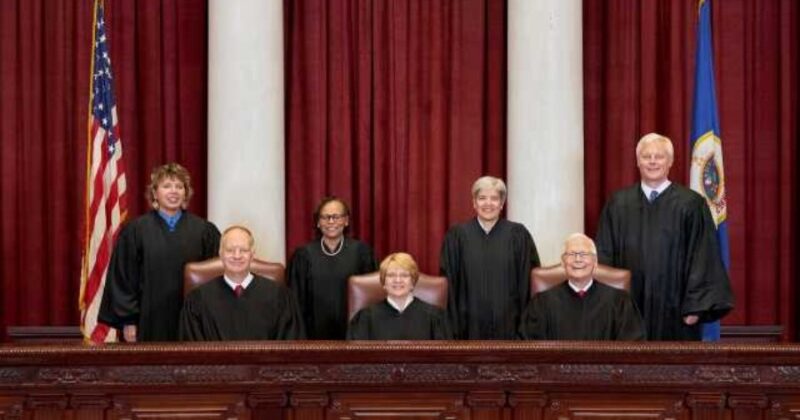In a split decision, the Minnesota Supreme Court decided that individuals who are under attack or threatened must retreat if it is “reasonably possible” instead of brandishing a weapon.
The court upheld two second-degree assault convictions against a man armed with a machete who claimed he was threatened by another man with a knife at a light rail station in Minneapolis in 2021.
In a 4–2 decision issued Wednesday, the state’s Supreme Court ruled that Minnesota law requires individuals to “duty to retreat” when reasonably possible before using deadly force. This obligation applies even when a person faces bodily harm, the judges determined.
In its decision on Wednesday, the state Supreme Court stated that the “duty to retreat when reasonably possible—a judicially created element of self-defense—applies to persons who claim they were acting in self-defense when they committed the felony offense of second-degree assault-fear with a device designed as a weapon and capable of producing death or great bodily harm.”
The plaintiff in the case, Earley Romero Blevins, brandished a machete after a man with a knife allegedly threatened him at a Minnesota rail station. According to Blevins, the man approached him while he was arguing with a woman and told him to come to a shelter at the station so he “could slice” his throat.
According to the ruling, Blevins argued that he was acting in self-defense and feared for his life when he brandished the machete. However, after reviewing video footage of the incident, the justices concluded that Blevins had ample opportunity to leave the situation.
Blevins also claimed that he was trying to defend himself against three people: the woman he was arguing with, the man who threatened him with a knife, and another man. He said he waved the machete at all three until they left. No one was injured in the incident.
“When viewed in a light most favorable to the verdict, the direct evidence from the security videos presented at trial disproves beyond a reasonable doubt Blevins’s claim that it was not reasonably possible for him to retreat,” Chutich wrote.
In a dissent, Justice Paul Thissen suggested that the majority’s opinion on self-defense in Minnesota is tantamount to overreach and unrealistic.
“The court holds that a person under attack must always find and exercise a reasonable opportunity to retreat before threatening force with certain weapons (but apparently not others) to deter the attacker,” his dissent said.
“Not only is the court’s decision divorced from the statutory text and unprecedented in the United States; it also flies in the face of human nature,” he added.
The state Supreme Court’s majority ruling, he wrote, has taken the “law of self-defense into uncharted waters,” adding that it is “not only unprecedented in this state” but has “never been adopted anywhere” else in the United States.
“Until now, the collective wisdom of judges nationwide over hundreds of years has never imposed a duty to retreat before making threats to deter an aggressor,” Thissen added.
Share your thoughts by scrolling down to leave a comment.

